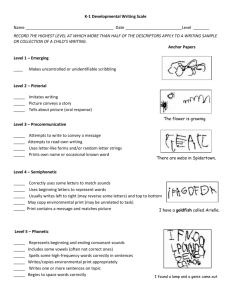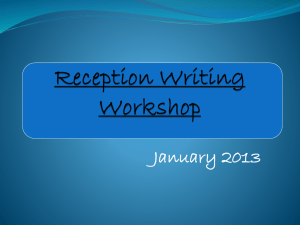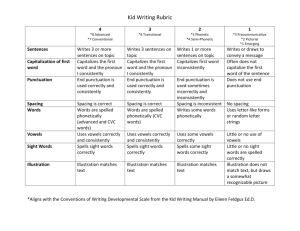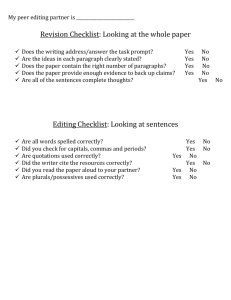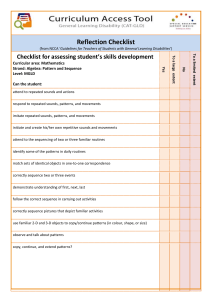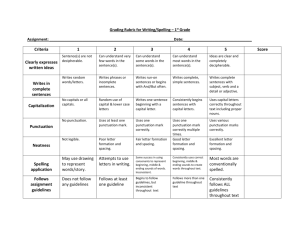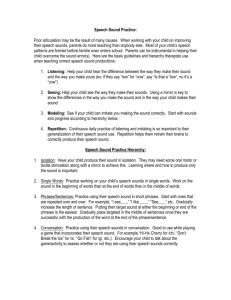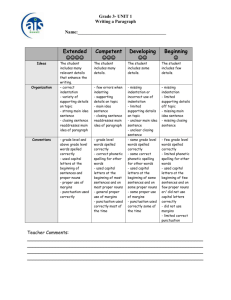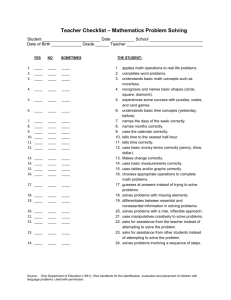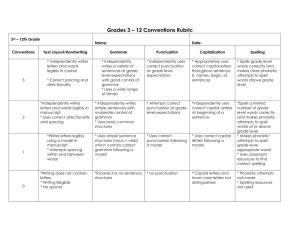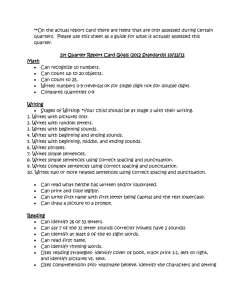Kindergarten Writing Continuum
advertisement
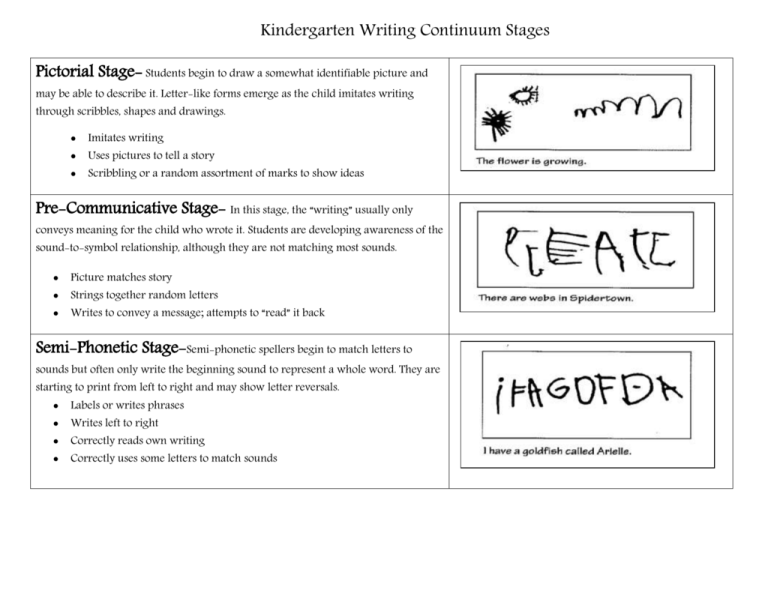
Kindergarten Writing Continuum Stages Pictorial Stage- Students begin to draw a somewhat identifiable picture and may be able to describe it. Letter-like forms emerge as the child imitates writing through scribbles, shapes and drawings. Imitates writing Uses pictures to tell a story Scribbling or a random assortment of marks to show ideas Pre-Communicative Stage- In this stage, the “writing” usually only conveys meaning for the child who wrote it. Students are developing awareness of the sound-to-symbol relationship, although they are not matching most sounds. Picture matches story Strings together random letters Writes to convey a message; attempts to “read” it back Semi-Phonetic Stage-Semi-phonetic spellers begin to match letters to sounds but often only write the beginning sound to represent a whole word. They are starting to print from left to right and may show letter reversals. Labels or writes phrases Writes left to right Correctly reads own writing Correctly uses some letters to match sounds Phonetic Stage- Phonetic spellers spell words the way they sound. These spellings do not necessarily look like English spellings, but they are quite readable. Initial and final consonants are in place. Your child’s writing is becoming easier to read. Spells some words correctly, high frequency words used often Represents beginning and ending sounds, attempts to add vowels Writes one sentence Have a higher understanding of letter sounds and spelling patterns Transitional Stage- Transitional spellers begin to write words in more conventional ways. These spellers undergo a transition from reliance on sound to reliance on visual memory of how the word looks in print. They write with more correct vowels in every syllable. Often, all the letters necessary to spell the word are there, but some letters may be in the wrong order. Correctly uses vowels in some words Uses some punctuation, may not be correct Writes more than one sentence Generates own ideas for writing Adds description and detail Conventional Stage-At this level, your child spells most words correctly, although he or she may use phonics-based spelling for advanced words. Your child is using capital and lowercase letters and punctuation marks correctly. Correctly spells most high frequency words Writes several sentences using more complex and varied sentence structure Uses punctuation and spaces correctly Uses larger vocabulary, spelled correctly and may use phonetic spellings for advanced words. Writing is expressive
